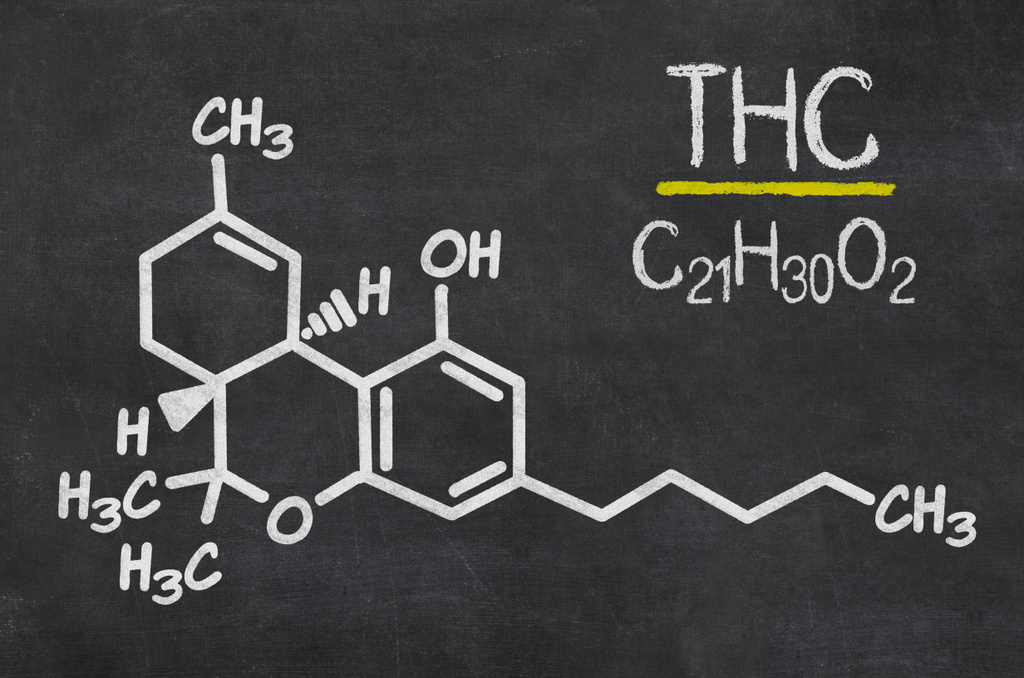According to a new study being published in the upcoming issue of the journal Histochemistry and Cell Biology, researchers have found that THC may counteract the damaging effects of a high-fructose diet on the small intestine.

A blackboard with the chemical formula of THC.
The study, available online ahead of print on the website for the US National Library of Medicine, was conducted by researchers from Istanbul University-Cerrahpaşa and Demiroglu Bilim University in Turkey, and the Otto-Von-Guericke-Universität Magdeburg in Germany.
“The consumption of fructose is increasing day by day. Understanding the impact of increasing fructose consumption on the small intestine is crucial since the small intestine processes fructose into glucose”, states the study’s abstract. “∆9-Tetrahydrocannabinol (THC), a key cannabinoid, interacts with CB1 and CB2 receptors in the gastrointestinal tract, potentially mitigating inflammation.”
Therefore, this study “aimed to investigate the effects of the high-fructose diet (HFD) on the jejunum of rats and the role of THC consumption in reversing these effects.”
For the study, rats were divided into four groups: control (C), high-fructose diet (HFD), THC-treated, and HFD with THC treatment. The HFD group received a 10% fructose solution for 12 weeks, while the THC groups were given 1.5 mg/kg/day of THC for the last four weeks.
Results showed that although fructose did not cause weight gain, it induced inflammation, disrupted cell proliferation, and increased mucus secretion in the jejunum. In contrast, THC treatment reduced inflammation and restored cell proliferation balance. Additionally, ultrastructural analysis revealed that THC improved the integrity of the zonula occludens structures and increased mitochondria in the jejunum of HFD rats.
These findings suggest that THC has therapeutic potential in mitigating the adverse effects of a high-fructose diet on the small intestine.
You can find the full text of the study by clicking here.






